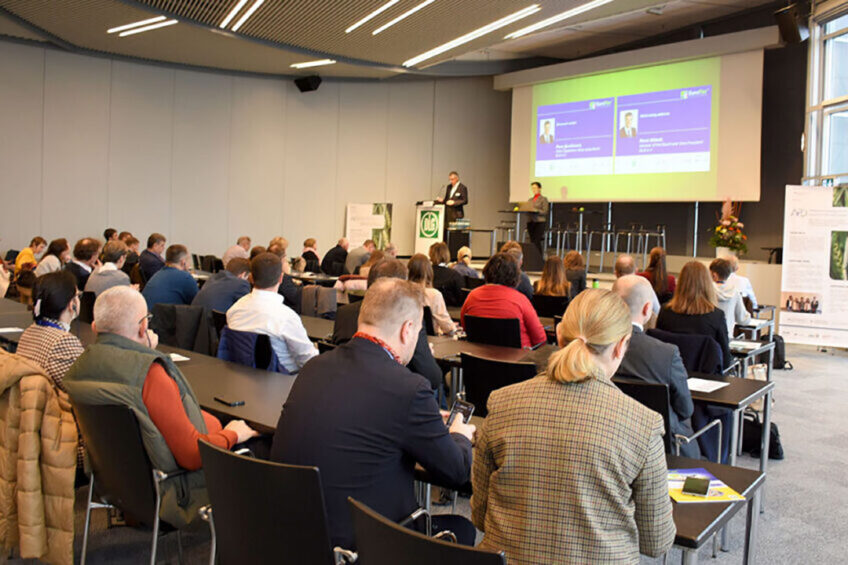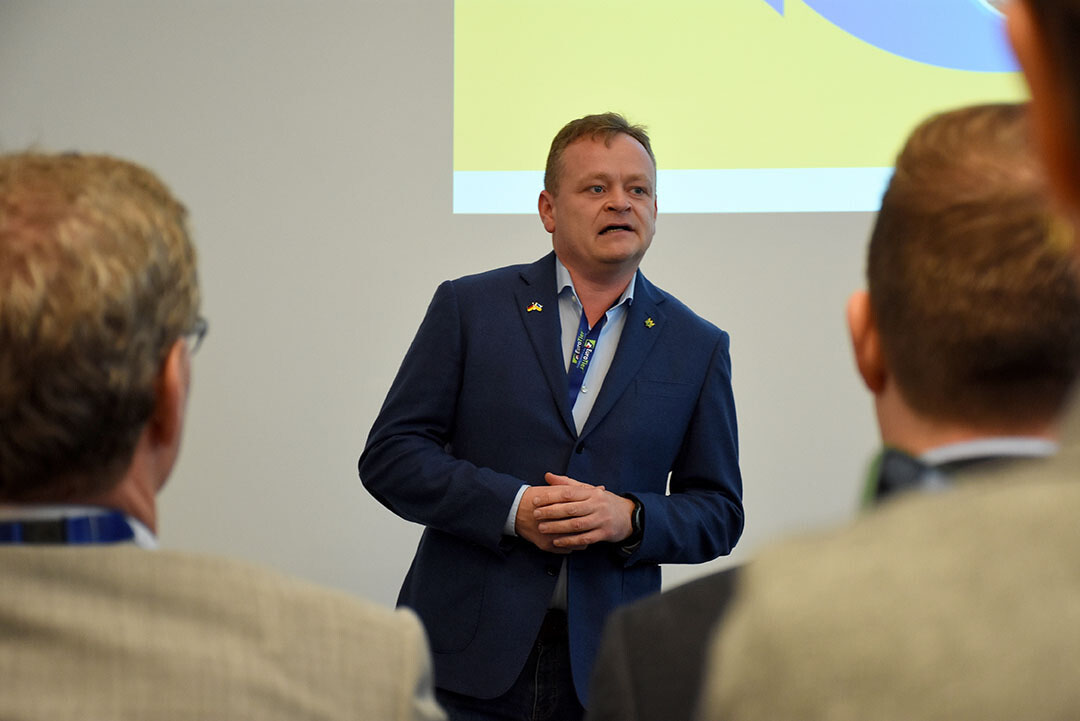Ukraine’s dairy and livestock sectors needs urgent post-war assistance

The livestock sector in Ukraine is currently suffering huge losses due to the war inflicted by Russia and will need big global assistance to recuperate when the hostilities end.
The war has affected every livestock sector in Ukraine. This happens still, due to constant shelling of farms and agri businesses by the Russians. The Ukrainians however have adopted a steadfast determination to rebuild.
In fact, estimates say that Ukraine will lose around 30% of its total livestock numbers by the time this war is over.
Slow agri export due to bombing
Prior to the war, the agricultural sector in Ukraine was over 17% of the GDP and earned the country over 40% in foreign exchange income. However, since the war began, agri exports from Ukraine have been very slow when the Russians bombed the key ports. That scenario is improving with a permissible export corridor currently operational to allow the shipment of grains and other products to leave Ukraine.
This amounts to 1.5 to 2 million tonnes per month, significantly down from the pre-war figure of 6 to 7 million tonnes per month.
Stakeholder meetings EuroTier 2022
During EuroTier in Germany a number of stakeholder meetings were held to show support for Ukraine. They outlined the current situation of the agricultural industry there and the plans in place to revive it.
Current situation livestock sector Ukraine
To paint the picture, the Ministry of Agrarian Policy and Food of Ukraine estimates the agricultural sector alone has already lost US$ 40 billion. However, if we take a more forensic look at the damages to the specific livestock sectors, the figures are quite startling.
According to the Ukrainian Agri Council, the loss of commercial pig production output is estimated at 13-15%. Yearly pork production is likely to decrease to 365,000 to 380,000 tonnes in slaughter weight equivalent, compared to 432,000 tonnes of the previous year.
The bombing totally destroyed 15 pig farms, the biggest of which had 32,000 pigs. However, 19 of 24 regions that produce pigs have resumed operations and are in the process of resuming crucial seller supplier relations.
The Association of Pig Breeders says the industry can reach the pre-war level of production in 1 to 2 years’ time.
Marshall Plan
A number of Ukrainian agri associations presented a Marshall Plan to an audience of farmers gathered at EuroTier for round table talks.
The meeting was organised by the Ukrainian Agri Council, the Association of Milk Producers, the Association of Ukrainian Pig Breeders, and the SAVEUA charity fund.
All of them call for prioritising significant investments for the agricultural sector once the war is over.

‘Farmers are surviving’
Andriy Dykun, chairman of the Ukrainian Agri Council (UAC) and founder of the SAVEUA Charitable Foundation, explained the current dire situation of the Ukrainian livestock sector.
He said: “Today, farmers who have animal husbandry are more or less surviving in Ukraine. The war proved to everyone how important it is to produce products with added value. Animal husbandry provides an opportunity, large agrarian companies have already begun to think about it,” he said.
“I predict that the recovery of Ukrainian animal husbandry after the war will be extremely rapid. But we need European and American processing technologies, as well as an understanding of who our partners will be. Ukraine is intensifying the export of dairy products, but there is not a single factory that can process more than a 1.000 tonnes of milk. This is the future, and we have good dairy farms. I believe that Ukrainian dairy farms are the most efficient in Europe today, but they lack effective processing,” he added.
Ukraine’s agri export potential not at full capacity
Andriy said the because of the war, Ukraine’s agri export potential is not working at full capacity and urged partners to help them produce more value-added products and focus on the development of processing.
He added: “This is already a certain agreement between the agricultural community and the Ukrainian government. We convinced the authorities that the agricultural sector is one of the priorities, as it is able to support the country’s economy and provide jobs.”
Given the current losses and prospects of the agricultural sector, investments for recovery will need to reach tens of billions of dollars.
US$40 billion in losses
As Hanna Lavreniuk, General Director of the Association of Milk Producers (AMP), said, it is all necessary. “The total losses of the agricultural sector amount to almost $ 40 billion, of which direct losses are $ 6.6 billion. It is $ 2.8 billion for agricultural machinery, more than $ 1.5 billion for production facilities, more than $ 1.5 billion for livestock complexes. Gardens and long-term plantings have lost almost $ 4.4 billion. This is the situation in which we live now. In addition, the agricultural sector has more than $ 35 billion of indirect losses. This profit is lost as farmers did not harvest and did not sow a new crop. Also they lost revenues from the sale of products,” she said.
Restoring the livestock sector in Ukraine
So how can the agricultural sector in Ukraine be restored? All the Ukrainian agrarian associations are convinced that the agricultural sector should be restored in stages.
It is extremely important to provide agricultural enterprises with generators for uninterrupted operation, veterinary medicines, vaccines, premixes, feed additives, and hygiene products for animals, etc
The UAC and the AMP proposed their vision within the Marshall Plan for the restoration of the dairy industry of Ukraine, which consists of 3 stages. Lyubomyr Dykun, Vice-president of the AMP
Vice-president of the AMP, Lyubomyr Dykun, says implementation of the first stage should happen during the active phase of the war, which requires urgent support of Ukrainian producers. “In particular, this includes charitable material support to enterprises from the occupied territories that have lost livestock as a result of hostilities, for the purchase of breeding animals and material assistance for the repair of damaged facilities and destroyed equipment. It is extremely important to provide agricultural enterprises with generators for uninterrupted operation, veterinary medicines, vaccines, premixes, feed additives, and hygiene products for animals, etc.”
Technical support projects
The second phase of the Marshall Plan includes technical support projects such as reconstruction of farms, demining of agricultural land, purchase of breeding livestock and provision of services to agricultural enterprises.
Directing investments to the development of processing
And the third phase will directly shape the dairy industry of Ukraine directing investments to the development of processing, cooperatives and the construction of research and educational agricultural institutions.
Andriy Dykun added: “We already have a new strategy for future investments. Together with international partners, we need to create and develop cooperative milk processing plants, cooperative slaughterhouses, build genetic centres, educational and research facilities, create irrigation equipment factories.
“And it is equally important to educate specialists and encourage young people to work in the agricultural sector. To do this, it is necessary to create and build the Ukrainian Agrarian University,” he said.
Cooperation with a number of international partners such as the FAO, USAID and the Swiss government, is ongoing to implement several projects to support agricultural enterprises affected by the war.






